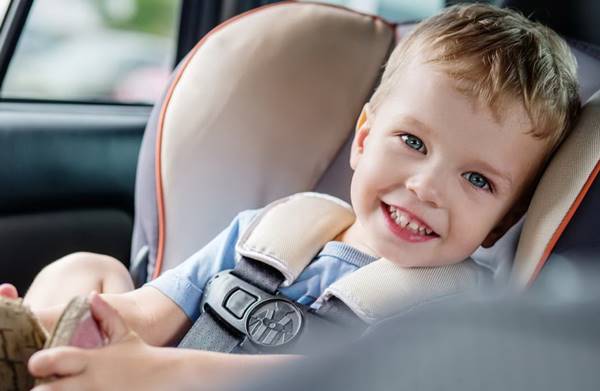
FRIDAY, July 14, 2017 (HealthDay News) –– On July 2, a 7-week-old baby boy died after being left in his grandmother’s van for almost eight hours on a hot summer day in Mary Esther, Fla.
The boy’s mother placed the infant in a rear-facing car seat in the van after church. But the grandmother wasn’t told the baby was in the vehicle, according to the Okaloosa County Sheriff’s office.
By the time the grandmother realized the baby was in the van, he had already died from the heat.
Sadly, that youngster isn’t alone. Dozens of children die every year from heat stroke after being left in a hot car, most often because a parent forgot them in the back seat, child safety experts explained.
“It’s surprisingly common, and the thing that’s most important is it’s 100-percent preventable,” said Dr. Ben Hoffman, director of the Doernbecher Children’s Hospital Tom Sargent Safety Center in Portland, Ore. “Anybody is capable of forgetting a child in a car.”
Seven hundred kids died between 1998 and 2016 from overheating in a stiflingly hot car, according to the U.S. National Highway Traffic Safety Administration (NHTSA).
More than half the time, the child died because their caregiver forgot they were in the vehicle and left them behind, the NHTSA said.
These tragedies most often occur due to miscommunication, absent-mindedness or an overloaded schedule, said Lorrie Walker, a training and technical advisor for the advocacy group Safe Kids Worldwide.
“Parents don’t necessarily do this on purpose, or because they’re not a good parent,” Walker said. “It’s really easy to point fingers and say these are terrible people, and they’re not. This is just a failure of circumstance that leads to the horrendous and horrific death of their child.”
Heat stroke is the leading cause of non-crash-related vehicle deaths for children 14 and under, according to the NHTSA.
In 54 percent of cases, the child died because they were forgotten in the car, according to federal statistics. Only 17 percent of the time do children die because an adult intentionally left them in the car.
“These are the ones we really, really struggle with, because we tell people over and over not to leave your child alone in a car, not even for one minute,” Walker said.
Cars heat up very quickly, even in conditions a person might reasonably consider safe, the NHTSA warned.
For example, car-related heat stroke can occur on cloudy days or in shaded areas, the agency said. A car interior can heat as much as 20 degrees within 10 minutes. And even at an outside temperature of 60 degrees, it can reach 110 degrees inside the car.
“Sunlight playing against the windows of a car make it like a convection oven,” Walker said.
Rolling down a window a bit does nothing to relieve temperatures inside, Walker added.
“Cracking a window has no effect on this,” Walker said. “It’s totally meaningless. It does not do anything.”
Children are particularly vulnerable to heat stroke. Their body temperature heats up three to five times that of adults, the NHTSA said. Heat stroke begins when core temperature reaches about 104 degrees, and a temperature of 107 is lethal.
Many states have outlawed leaving children unattended in a vehicle. In June, three members of Congress introduced the Hot Cars Act of 2017, which would require cars to be equipped with a system to alert drivers if a passenger remains in the back seat after the engine is shut off.
“Our cars can already alert drivers when they leave their keys in the car, their lights on, or their trunk open — none of which are life-threatening,” Rep. Tim Ryan, D-Ohio, one of the sponsors, said in a news release.
“It is not unusual for the government to mandate safety features to protect lives. Cars are mandated to have seat belts, interior trunk-releases and rear backup cameras. Our legislation would move us one step closer to getting this inexpensive technology in every car on the road to help save the lives of children nationwide,” Ryan added.
Similar warning devices are already available, but most parents don’t use them because they don’t think this could ever happen to them, Walker said.
She recommends that parents leave something important in the back seat with their child — their cellphone, briefcase, gym bag, wallet or purse — as an added incentive to open the back door upon arriving at their destination.
But Hoffman said such self-reminders don’t always work.
“There are a lot of clever things people have tried that really have not been shown to necessarily make a difference,” Hoffman said. “There’s really no substitute for just being vigilant. Parents should do anything they can to get in the habit of never leaving a kid alone in a car. If a child is never left alone in a car, this would never happen.”
Walker added that anyone who sees a child left unattended in a car should immediately contact authorities.
“Immediately call 911. Don’t give it a second thought,” she said.
Source :-Health Day

Leave a Reply